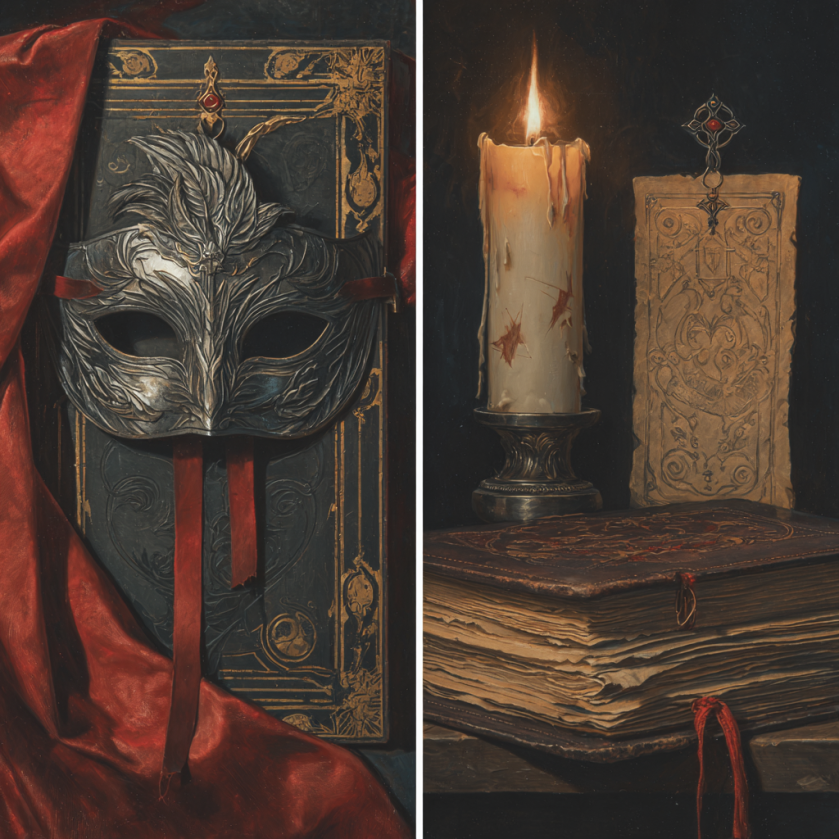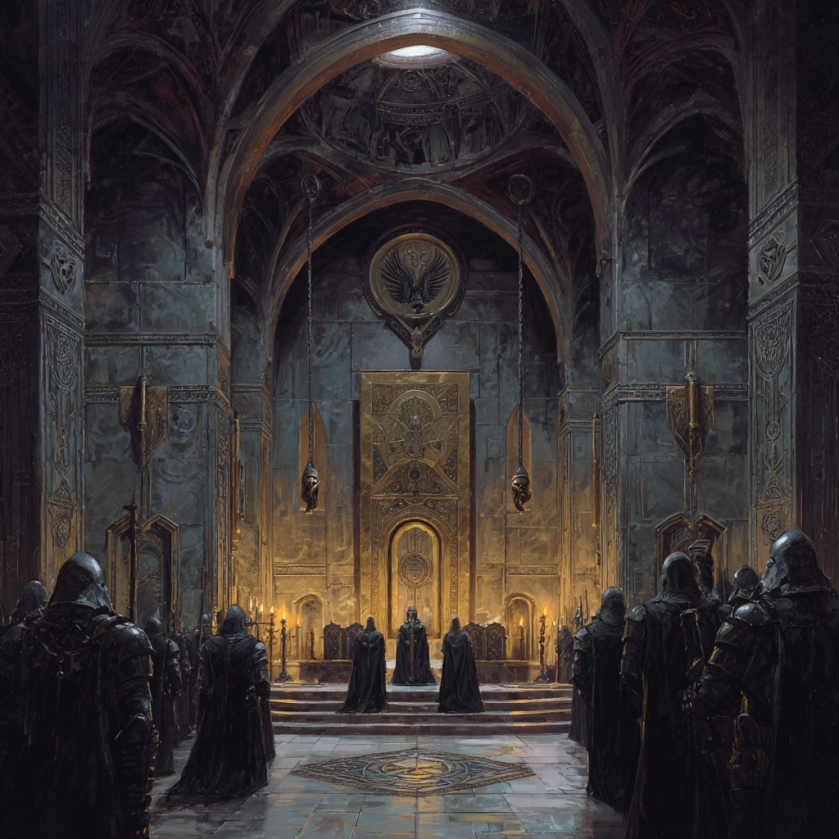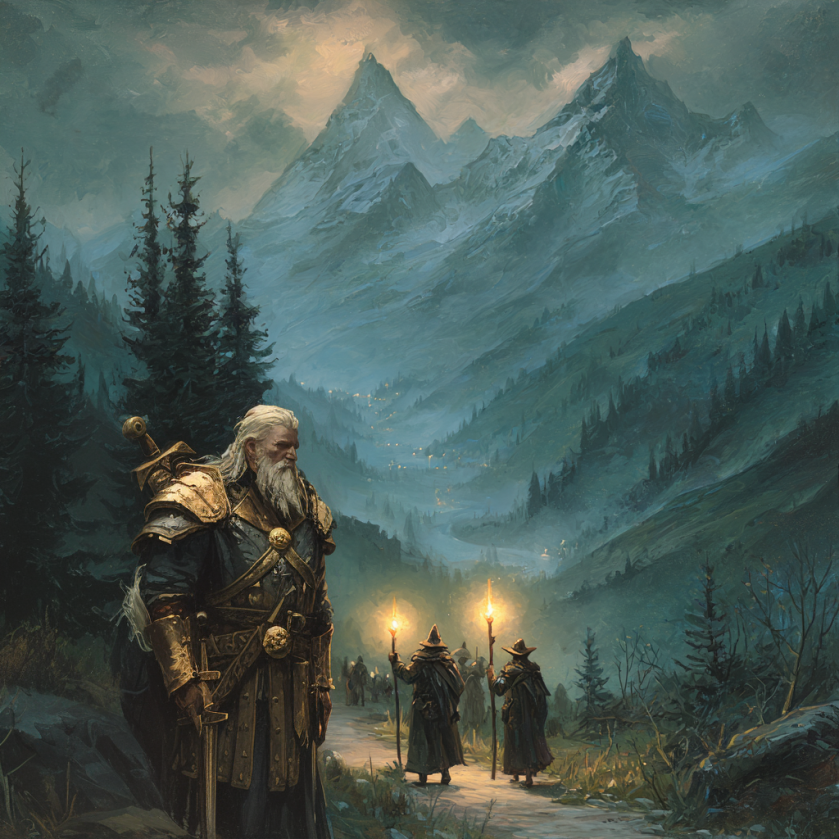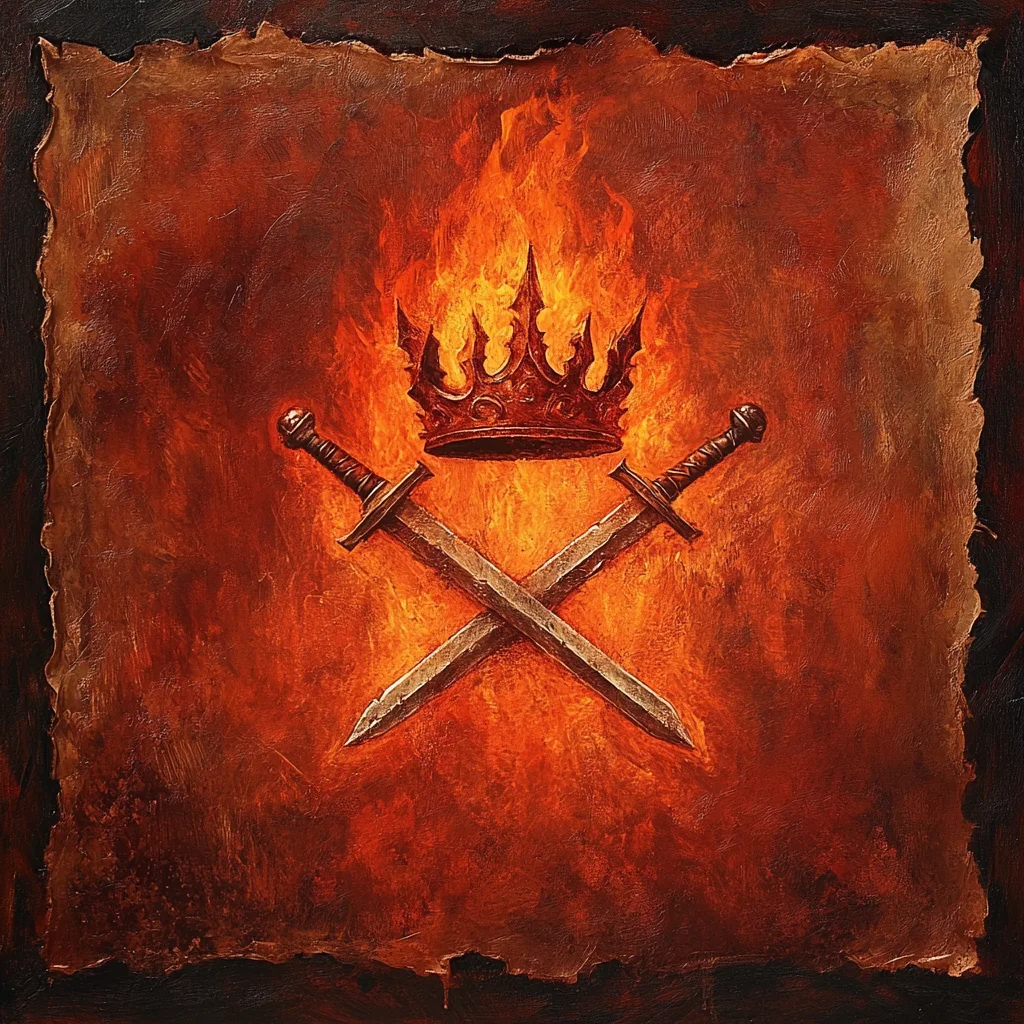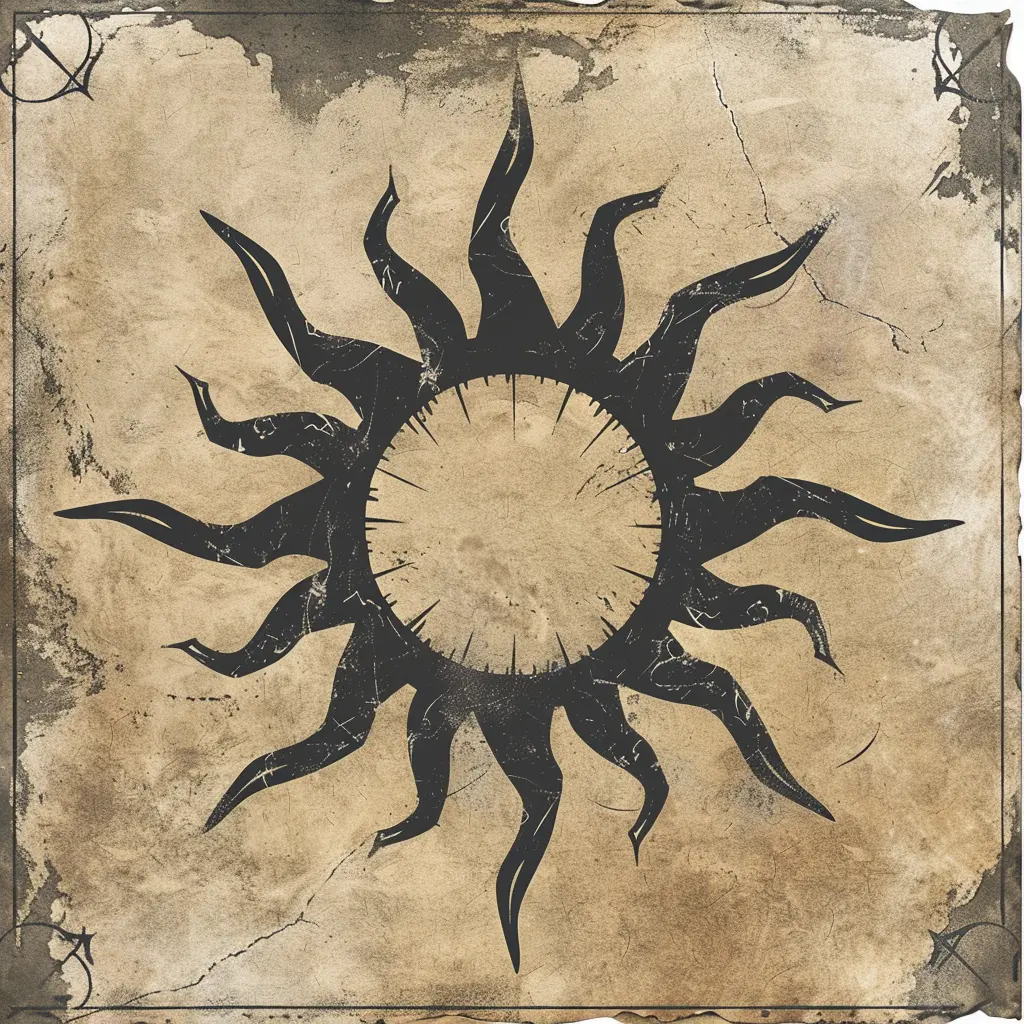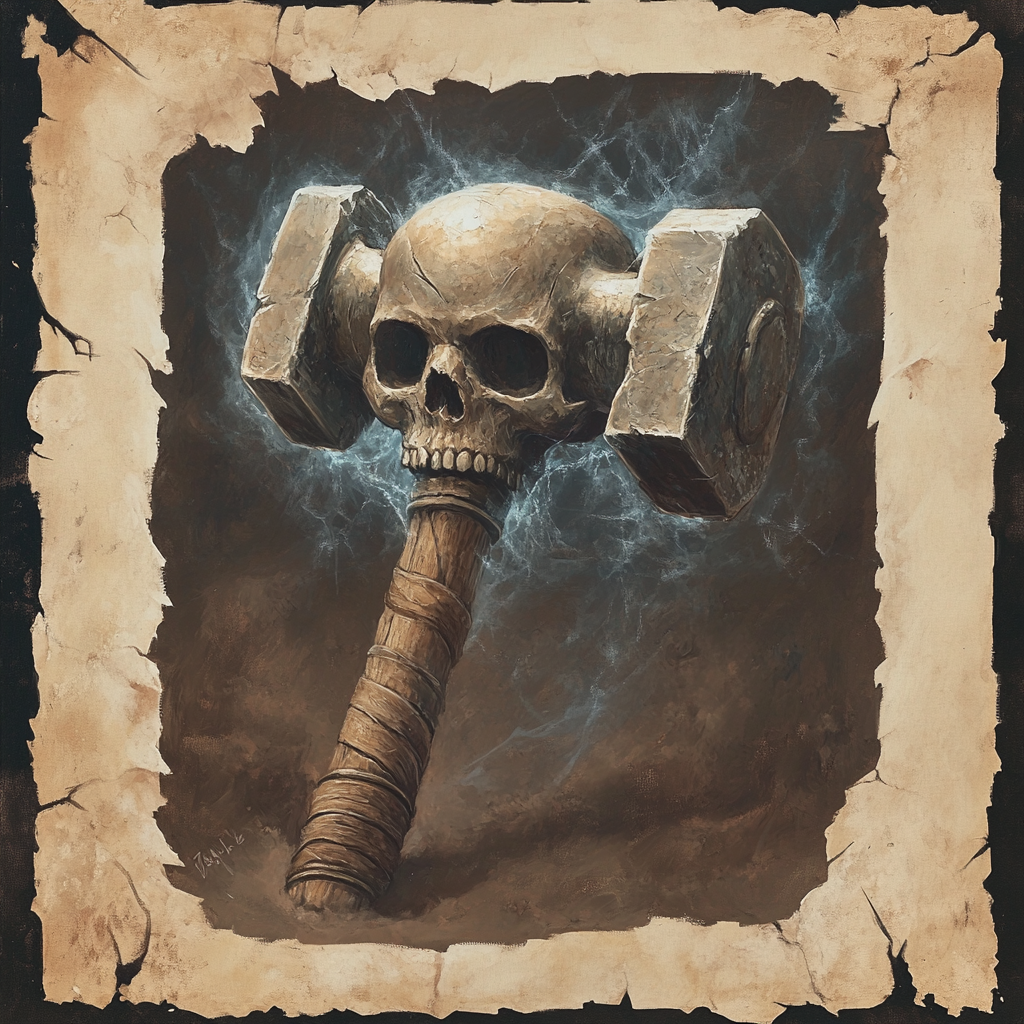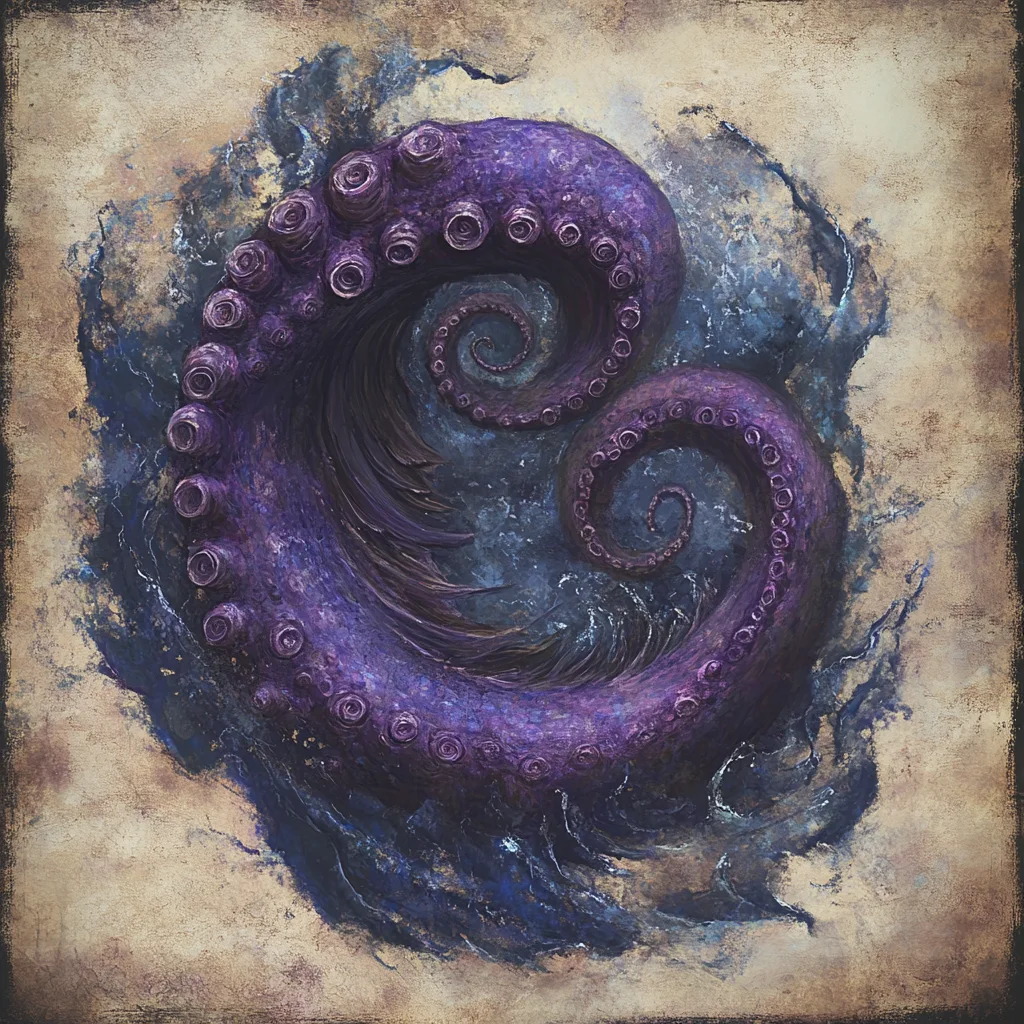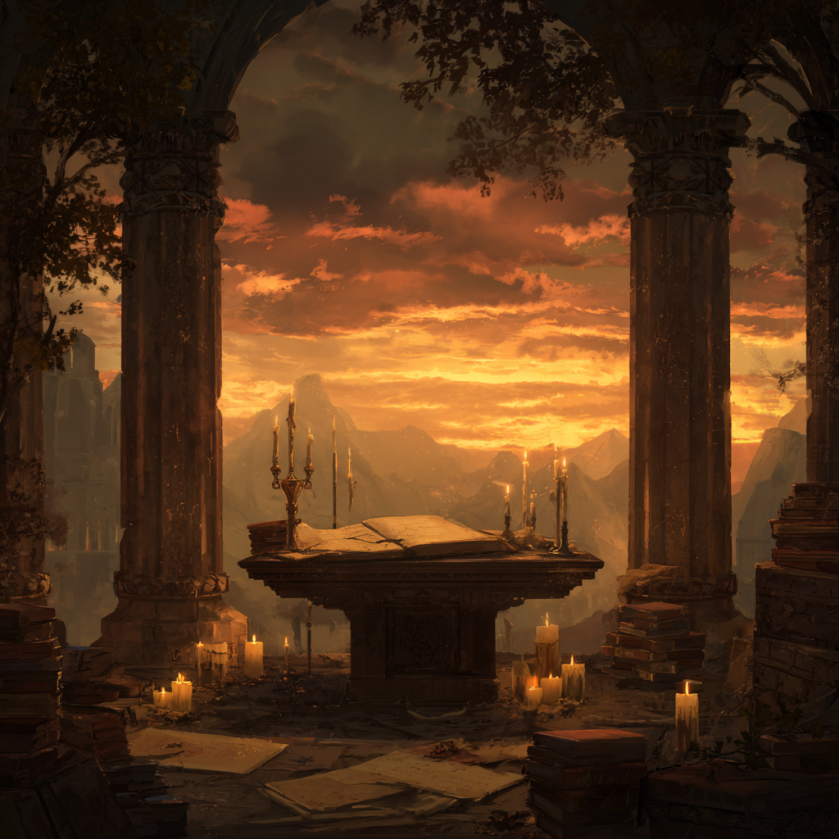Faith and Shadow
Divine power wanes across the Crescent, though it has not disappeared entirely. The gods speak in whispers now, their blessings fitful and strange. Yet people still pray in shadowed temples and hidden gathering places, clinging to what remains of the sacred. Civilization endures because these fragmented faiths endure with it.
Mōrga the Gray
Mōrga's priests run the courts, handle dangerous knowledge, and deal with supernatural threats. She's not gentle, but she's reliable and fair - more than most gods offer. Her silver mask symbol marks shrines throughout the cities, where people make offerings before major decisions.
Solm the Fading
Once a god of healing light and miraculous power, Solm's strength has faded since the great change everyone calls the Fade. His remaining faithful gather in small groups, keeping old rituals alive through hope and habit. The traditional "Solm's blessing" persists in everyday speech, though few expect divine response.
"I find it curious how folk cling to gods who've clearly abandoned them, praying harder as divine silence grows longer. Of course, not everyone can appreciate the elegant rationality of venerating Cogwicken, the Great Gear—a deity whose very existence proves itself through the magnificent precision of clockwork."
— Divine Diminishment and Mortal Response, p. 201
The Old Ways
Folk traditions run deeper than temple worship in most households. People maintain ancestor shrines, celebrate harvest festivals, and perform craft blessings that their grandparents taught them.
These customs connect to a vast network of minor spirits, demigods, and local powers that govern specific aspects of life. The goddess of crossroads, the spirit of the forge, the sea-lord who guides fishermen: countless small divinities handle the immediate concerns that major gods overlook.
Brenna Stoneway, Road Warden
"Listen, I still leave salt, coin, or grain, sometimes all three, at my home stone. Judge me all you want, but I make it home every circuit."
A baker blesses bread to honor the grain-mother, a trader leaves offerings at boundary markers for the road-watchers, a guard whispers prayers to whatever keeps the darkness at bay. These practices coexist naturally with formal temple worship, filling the gaps between grand doctrine and daily need.
Jhormun: Dwarven patron of craft and mountain stone. His followers believe skilled work channels divine will through carefully placed runes and traditional techniques. Mountain clans maintain forge-shrines where they consecrate tools and weapons.
Whisthael: Halfling guardian of hearth and home, balancing domesticity with adventurous spirit. Her teachings emphasize community bonds and the courage to journey beyond familiar places when necessary. Halfling households keep small shrines near their front doors.
The Four Wounds
Not every god offers wholesome blessings. Some provide effective solutions that extract hidden costs over time.
These deities specialize in solving problems that conventional faith cannot address:
Their worship exists at society's edges, not outlawed but not welcomed either. People cross streets to avoid their temples. Yet desperate circumstances drive some to seek help even from questionable sources. The bargains they offer work perfectly, which makes them dangerous.
Daily Faith
Spiritual practice in the Crescent is less about formal worship and more about daily habit. Morning prayers at family shrines, offerings left at boundary stones, brief rituals before starting work or traveling.
Most religious activity happens outside temples: at household altars, crossroads markers, workplace shrines maintained by various trades. Priests still serve important functions. They witness marriages, oversee burials, mediate conflicts, and provide healing when their powers cooperate.
People maintain these practices because they provide structure and hope in an uncertain world. The gods may be distant, but the rituals remain familiar.
